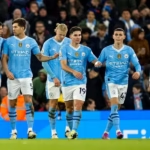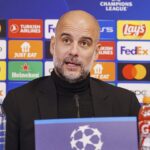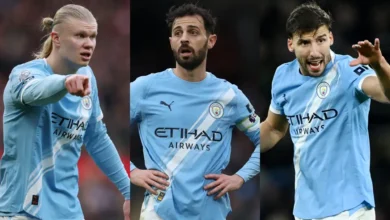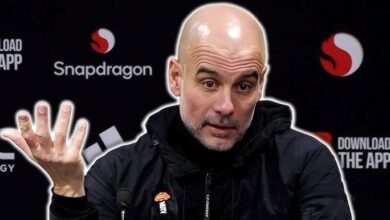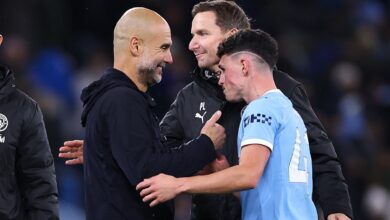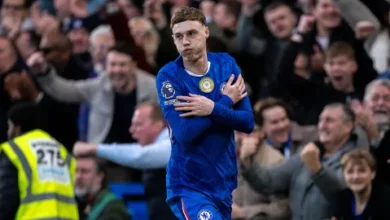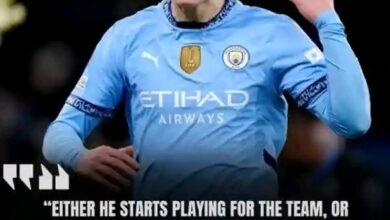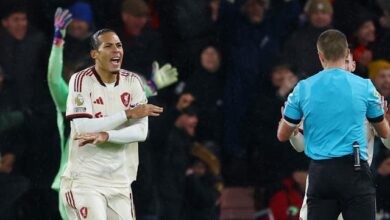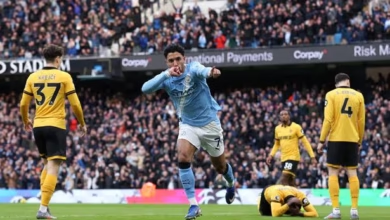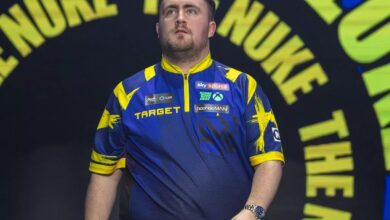SPURS Star to leave Tottenham after Europa League glory?! Saudi Arabian clubs circle as Spurs aim to reshape squad despite doubts over Ange Postecoglou’s future

The world of football rarely stands still, and even moments of triumph can quickly transform into periods of uncertainty. Such is the current situation at Tottenham Hotspur, where the euphoria of their Europa League victory has been tempered by mounting speculation about significant changes to both their playing squad and management structure. At the center of these discussions stands Son Heung-min, the club’s beloved captain whose potential departure would represent one of the most seismic shifts in Tottenham’s recent history.
Son Heung-min’s story at Tottenham Hotspur reads like a modern football fairy tale, albeit one that has taken nearly a decade to reach its climactic moment. When the South Korean forward arrived from Bayer Leverkusen in August 2015 for what now seems like a bargain fee of £22 million, few could have predicted the profound impact he would have on the North London club. The transfer represented a significant investment for Tottenham at the time, but it has proven to be one of the most astute pieces of business in the club’s modern era.
Over the course of 454 appearances, Son has established himself as more than just a prolific goalscorer—though his tally of 173 goals and 101 assists speaks volumes about his consistent excellence. He has become the embodiment of Tottenham’s ambitions, a player whose commitment to the club has never wavered despite numerous opportunities to move to what many would consider more successful teams. His journey from promising winger to established star, and eventually to club captain in 2023, mirrors Tottenham’s own evolution during this period.
The pinnacle of Son’s Tottenham career came in May 2025 when he lifted the Europa League trophy, finally achieving what had eluded both him and the club for so long—major silverware. For a player who had experienced the heartbreak of losing the Champions League final in 2019 and several other near-misses, this moment represented vindication of his loyalty and belief in the Tottenham project. The image of Son holding aloft the Europa League trophy will be forever etched in the memories of Spurs supporters, symbolizing not just personal achievement but collective redemption.aq♦
The speculation surrounding Son’s potential departure cannot be divorced from the broader context of Saudi Arabian football’s aggressive expansion into the global market. The Saudi Pro League has emerged as a disruptive force in international football, wielding financial resources that few clubs can match and targeting high-profile players at the peak of their careers. Their approach represents a fundamental shift in the football landscape, where traditional powerhouses must now compete with entities backed by sovereign wealth.
For a player of Son’s caliber and profile, the appeal of a move to Saudi Arabia extends beyond the obvious financial incentives. At 33 years old, Son finds himself at a career crossroads where the opportunity to secure his family’s future while continuing to compete at a high level presents an attractive proposition. The Saudi Pro League has demonstrated its ability to attract world-class talent, from Cristiano Ronaldo’s headline-grabbing move to Al Nassr to the subsequent arrivals of Karim Benzema, N’Golo Kanté, and numerous other established stars.
The timing of this interest is particularly significant given Son’s contract situation. Having signed an extension during the 2024-25 season that runs until 2026, Tottenham retain the ability to command a substantial transfer fee for their captain. This contractual position strengthens their negotiating hand, but it also creates a window of opportunity that both the player and interested clubs are undoubtedly aware of
The potential departure of Son Heung-min represents more than just the loss of a star player—it would signal a fundamental shift in Tottenham’s strategic direction. The club’s apparent willingness to entertain offers for their captain suggests a recognition that significant changes may be necessary to achieve their long-term objectives. This approach, while potentially controversial among supporters, reflects a pragmatic assessment of their current position and future needs.
The decision to potentially allow Son to leave must be viewed within the context of Tottenham’s broader squad planning. At 33, Son remains effective but is inevitably in the twilight of his career. The substantial transfer fee that his departure would generate could be reinvested across multiple positions, potentially addressing some of the squad’s structural weaknesses that have persisted despite years of investment.
However, the implications of losing Son extend far beyond tactical considerations. His leadership, both on and off the pitch, has been integral to Tottenham’s culture and identity. Finding a replacement for his goals and assists would be challenging enough; replacing his influence and connection with the fanbase would be virtually impossible. The club would essentially be gambling that the collective improvement achieved through reinvestment would outweigh the loss of their talismanic figure.
## The Postecoglou Factor: Uncertainty at the Helm
Complicating Tottenham’s decision-making process is the uncertainty surrounding Ange Postecoglou’s future as manager. The Australian’s position has come under scrutiny despite delivering the club’s first major trophy in over a decade. This paradox highlights the complex dynamics at play within modern football, where success can still be overshadowed by concerns about playing style, consistency, and long-term vision.
Postecoglou’s attacking philosophy and commitment to entertaining football initially won over many supporters, but questions have emerged about his ability to deliver sustained success. The Europa League triumph represents a significant achievement, yet doubts persist about whether his methods can be adapted to meet the demands of competing on multiple fronts while maintaining Premier League competitiveness.
The potential departure of both Son and Postecoglou in the same summer would represent an unprecedented level of change for Tottenham. Such a scenario would effectively mark the end of one era and the beginning of another, with all the risks and opportunities that such transitions entail. The club’s hierarchy would face the challenge of rebuilding their identity while maintaining momentum from their European success
Perhaps the most concerning aspect of the current speculation is the potential for a complete leadership overhaul at Tottenham. Reports suggesting that Cristian Romero, the club’s vice-captain, is also attracting interest from Atletico Madrid raise the possibility of losing both captain and vice-captain in a single transfer window. Such a scenario would create a leadership vacuum that could have far-reaching consequences for squad morale and on-field performance.
The importance of established leadership in football cannot be overstated. Son and Romero represent not just talent but experience, character, and the kind of influence that helps navigate difficult periods during a season. Their simultaneous departure would force Tottenham to identify new leaders from within their existing squad or seek to address this need through the transfer market—a notoriously difficult quality to acquire.
Young talents like Pedro Porro, Dejan Kulusevski, and Brennan Johnson would suddenly find themselves among the senior figures in the dressing room, potentially before they are ready for such responsibility. While this could accelerate their development, it also represents a significant risk for a club that has historically struggled with consistency and mental fortitude in crucial moments.
From a purely financial perspective, Son’s potential departure would provide Tottenham with substantial resources to reinvest in their squad. Conservative estimates suggest that Saudi Arabian clubs would be willing to pay £40-50 million for a player of Son’s pedigree, despite his age. This figure, while representing a significant profit on their original investment, also reflects the premium that must be paid for proven quality in the current market.
The challenge for Tottenham would be utilizing these funds effectively to improve their overall squad quality. Recent transfer windows have demonstrated the difficulty of replacing proven performers with multiple signings, particularly when those replacements must adapt to new leagues and playing styles. The club’s recruitment team would face immense pressure to identify players who could collectively match Son’s contribution while potentially addressing other positional needs.
Furthermore, Son’s departure would create a significant gap in terms of commercial appeal and marketability. His global profile, particularly in Asian markets, has been valuable for Tottenham’s brand development and commercial partnerships. Any financial calculation must account for the potential loss of revenue from reduced commercial attractiveness, though this could be partially offset by the cost savings from his departure.
Tactically, Son’s potential departure would necessitate a complete reassessment of Tottenham’s attacking approach. His versatility, pace, and clinical finishing have been central to their offensive strategy, whether deployed as a left winger, striker, or in various hybrid roles. His understanding with key teammates, developed over years of playing together, represents the kind of chemistry that cannot be easily replicated.
The South Korean’s ability to stretch defenses with his pace and create space for others has been particularly valuable in Postecoglou’s system. His departure would require either a significant tactical adjustment or the identification of a player with similar attributes—a challenging task given the unique combination of speed and finishing ability that Son possesses at the highest level.
Alternatively, Tottenham might view this as an opportunity to evolve their playing style, potentially moving toward a more possession-based approach that relies less on individual brilliance and more on collective movement and creativity. Such a transition would require careful planning and potentially additional signings to support the new tactical framework
Son’s potential move to Saudi Arabia would represent another significant milestone in the kingdom’s football project and its impact on the global game. The acquisition of such a high-profile captain from a major European club would send a strong message about the Saudi Pro League’s ambitions and its ability to attract talent from the world’s most competitive leagues.
This development would also have implications for Asian football more broadly. Son’s status as one of Asia’s most successful players in European football has made him a role model for countless young players across the continent. His move to Saudi Arabia could influence the career decisions of other Asian players and potentially shift the perception of the Saudi Pro League as a viable destination for ambitious footballers.
The broader football community would be watching such a transfer closely, as it would provide further evidence of the changing dynamics in global football finance and the growing influence of non-traditional football powers. The success or failure of such high-profile signings in Saudi Arabia continues to shape the narrative around the sustainability and sporting credibility of the league’s expansion strategy.
## Fan Perspective: Emotional Investment and Loyalty
For Tottenham supporters, the prospect of losing Son Heung-min represents more than just a transfer—it would be the departure of a player who has embodied their hopes and frustrations for nearly a decade. His commitment to the club during periods of disappointment, his consistency in performance, and his evident love for playing at White Hart Lane have created an emotional bond that transcends typical player-fan relationships.
The timing of this potential departure, coming so soon after finally achieving European success, adds a layer of complexity to fans’ emotions. While there might be understanding of the player’s desire to secure his future and explore new challenges, there would also be disappointment at the prospect of losing such an integral figure at what should be a moment of celebration and optimism.
The manner in which any potential departure is handled would be crucial for maintaining the positive relationship between Son and the supporters. His contributions to the club and his professional conduct throughout his tenure have earned him the right to leave with dignity and respect, regardless of the circumstances surrounding his exit.
The speculation surrounding Son Heung-min’s future at Tottenham Hotspur represents a defining moment for all parties involved. For Son, it presents an opportunity to cap off a remarkable European career with a lucrative move that could secure his financial future while potentially offering new challenges in a rapidly developing league. For Tottenham, it represents a complex decision between maintaining their current identity and potentially accelerating their evolution into a different kind of club.
The Saudi Arabian clubs circling the situation represent the new reality of modern football, where traditional hierarchies can be disrupted by significant financial investment. Their interest in Son demonstrates the continued appeal of proven European talent and the global reach of their ambitions.
Whatever the outcome, this situation will have lasting implications for the future direction of Tottenham Hotspur. The club stands at a crossroads, with their European success providing both vindication of their current approach and a platform for potential transformation. The decision regarding Son’s future may well determine which path they ultimately choose to pursue.
As the summer transfer window approaches, all eyes will be on North London to see whether Son Heung-min’s journey with Tottenham Hotspur will continue or whether his Europa League triumph will serve as the perfect conclusion to a remarkable chapter in both his career and the club’s history. The answer to this question will reverberate far beyond the confines of White Hart Lane, influencing transfer market dynamics, tactical approaches, and the ongoing evolution of global football’s competitive landscape.


